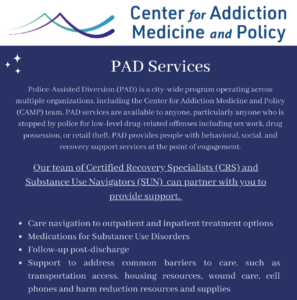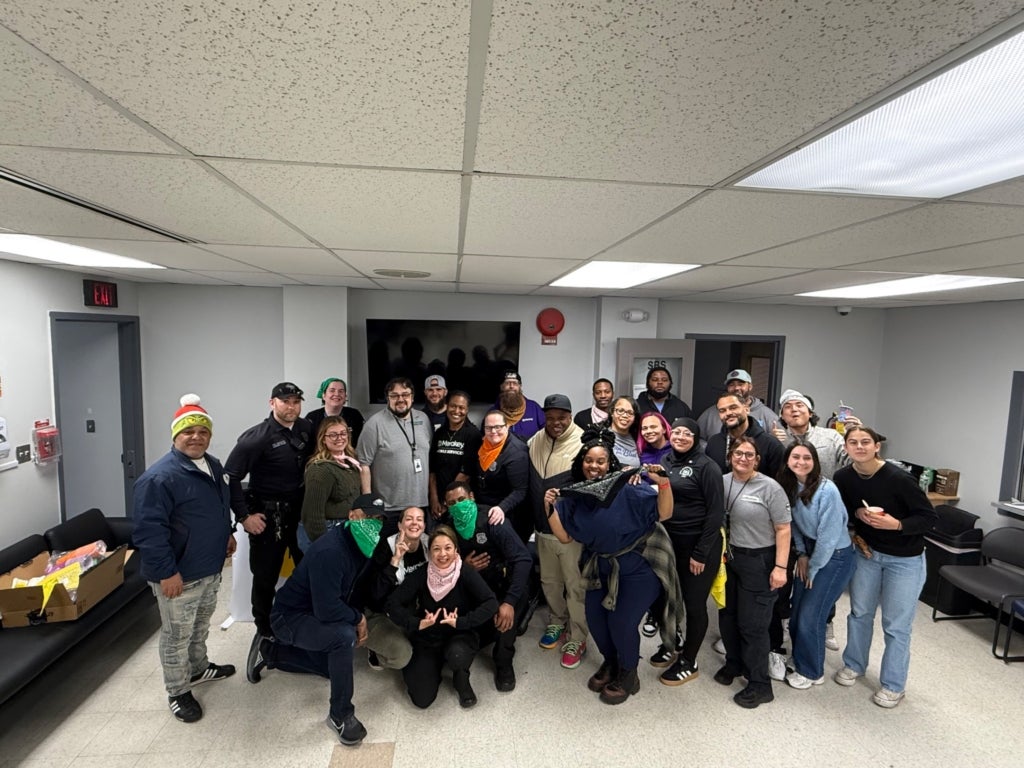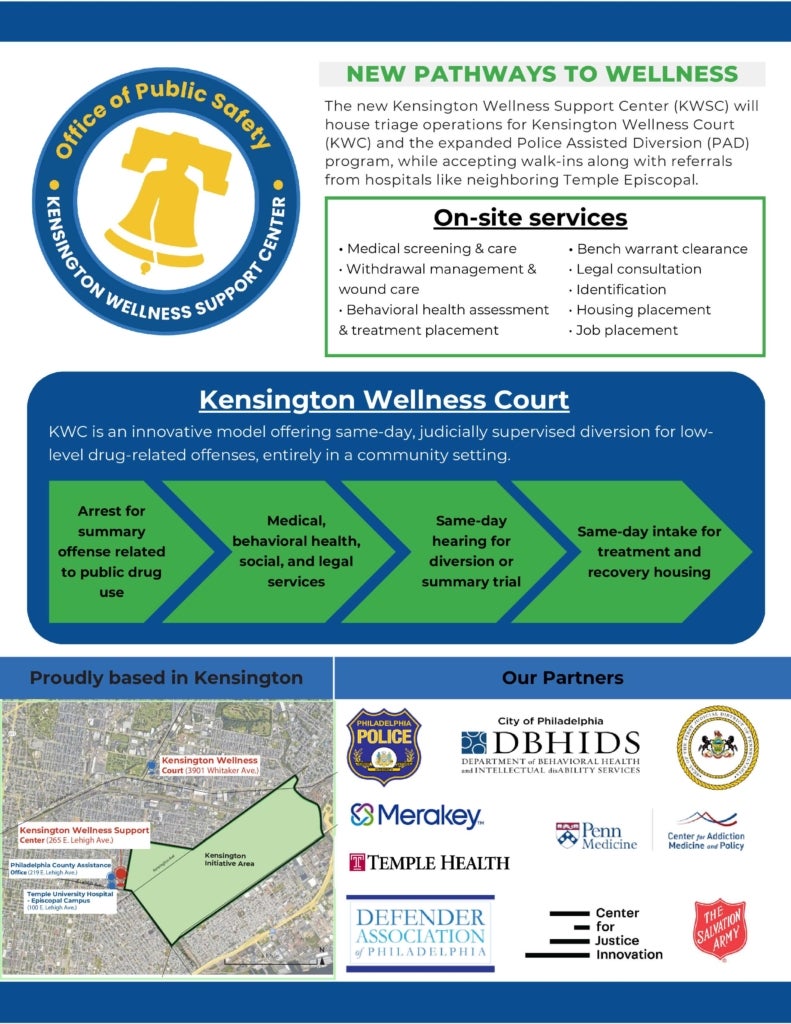Police-Assisted Diversion
Police-Assisted Diversion is the earliest opportunity for diversion away from the criminal justice system and into services after law enforcement contact for individuals with complex unmet health needs. Four diversion pathways include:
- Arrest Referral – Diversion at the point of arrest for retail theft, sex work, and unlawful possession or purchasing of Narcotics
- Social Referral – Warm handoff by law enforcement to service provider during mere encounters with the police when there is no reasonable suspicion or probable cause for an arrest
- Co-Responding Referral – Active engagement by tandem behavioral health and law enforcement teams in designated areas or responding to quality of life calls for service
- Social Referrals from the Community – PAD services are available to any community member desiring additional support

Please contact the CareConnect Warmline (7 days a week, 9am-9pm) to request PAD support.
A Substance Use Navigator will answer your call, provide support, and connect you to any and all resources.
For any programmatic questions, you can reach Gilly Gehri at gilly.gehri@pennmedicine.upenn.edu.
Background
The Philadelphia Police Assisted Diversion (PAD) program offers an alternative to arrest for people involved in low-level offenses, steering them toward supportive social services instead of the criminal justice system. Expanded city-wide in 2023, the program aims to address the root causes of low-level crime, such as substance use disorders and complex health needs.
Eligible participants may receive services that include the following:
- Case management and peer support
- Access to housing and shelter assistance
- Substance use treatment
- Food and nutritional aid
- Transportation services
- Connection to mental and behavioral health services
Program outcomes may include:
- Avoided prosecution: A key benefit reported by participants is avoiding arrest and prosecution for low-level crimes.
- No new charges: Failure to engage with the supportive services will not result in further criminal prosecution.
- Dismissed charges: After successfully completing the program, criminal charges are withdrawn.
- Record expungement: In many cases, successful program completion makes the participant’s case eligible for expungement without opposition from the District Attorney’s office.
- Recidivism reduction: By addressing underlying issues, the program aims to help individuals avoid getting trapped in the “revolving door” of the criminal justice system
This unique program is a collaboration of various agencies including the Philadelphia Police Department’s Behavioral Health Unit (BHU) that houses the CIRT and PAD teams, the community behavioral health non-profit organization Merakey, and Penn Medicine’s Center for Addiction Medicine and Policy (CAMP).
BHU
Formed in December 2022, the Behavioral Health Unit (BHU) houses two main programs, CIRT and PAD. These initiatives provide crisis intervention and diversion services, ensuring individuals receive de-escalation support, service connections, and alternatives to traditional law enforcement. By bridging law enforcement and mental health services, the BHU prioritizes de-escalation, support, and community-based solutions through its crisis response and diversion programs.
CIRT
CIRT, crisis intervention response teams, are teams comprised of sworn officers and mental health clinicians. CIRT operates citywide and respond directly to 911 calls and crisis events. The aim of CIRT is to provide individuals with behavioral health needs a tailored response, including de-escalation and connection to services. CIRT is paired with follow-up teams who work to continue service after the initial event, offering crisis response and diversion programs prioritizing de-escalation, support, and community-based solutions.
PAD
PAD is police-assisted diversion. In 2023, PAD expanded services citywide. Police Assisted Diversion is a program designed to divert individuals away from the criminal justice system. Participants are individuals who in previous years would have been arrested for incidents such as prostitution and narcotics possession. PAD connects these individuals to a wide range of services such as housing, substance use treatment, food, and transportation services. BHU aims to improve the lives of those involved while providing an alternative to traditional policing approaches.

Neighborhood Wellness Court: Philadelphia's Pilot Program Initiative
Penn Medicine’s CAMP is supporting the Neighborhood Wellness Court (NWC) with a medical triage team comprised of peer navigators, recovery specialists, and registered nurses. Our mission is to support participants with the highest quality of care by offering 1-to-1 assistance and engagement throughout their recovery journeys. To learn more about the City’s initiative, please visit their website here.

